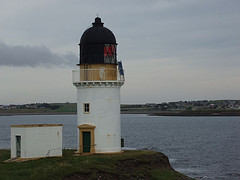Few people know that on 24 June 1922, the German Foreign Minister, Walther Rathenau, was assassinated in Berlin. As he was driven along a street in the city, another motorcar pulled alongside. One occupant stood up, shouldered a machinegun and fired five rounds into Rathenau, followed by a grenade. The minister died a few minutes later. His murderers made off towards Rostock on the Baltic Sea, but had to abandon their plans to escape across the water on account of bad weather. They cycled south, threatened a ferryman with firearms to take them across the River Elbe, and made their way halfway to Munich. Police traced them to a castle, where one was shot and the other committed suicide.
Who were the murderers? They were opposed to Rathenau's ideas of democracy, and keeping Germany together in the wake of the crippling Treaty of Versailles. This had laid the full blame for WW1 on Germany, an assertion that is at best unfair. Rathenau had wanted to stick to Versailles, whilst renegotiating its terms. This course of action made him the enemy of the far right in Germany, which wanted to shred Versailles. If Rathenau had survived is one of the great 'ifs' of history. What if Corporal Adolf Hitler had been asphyxiated by a mustard gas attack in WW1? What if Winston Churchill had been killed by a New York taxicab? What if?
The graves of the culprits of the Rathenau murder are still a shrine to Germany's far right to date. It's not pretty, but the reality of Europe today, and confirmation that the future is a function of the past, with the present as an operator.
I'm endebted to Dutch broadcaster VPRO for airing a documentary on this matter tonight.
Wednesday, 8 June 2011
Subscribe to:
Post Comments (Atom)

No comments:
Post a Comment